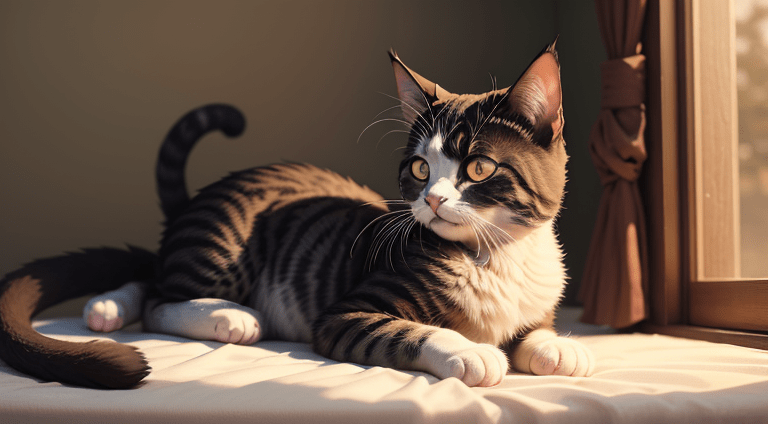When it comes to our beloved feline friends, their health and well-being are always a top priority. We often hear about various diseases and infections that can affect cats, but one question that might have crossed your mind is, “Can cats get mono?” In this comprehensive article, we will delve into the intriguing world of feline mononucleosis, exploring its causes, symptoms, treatment, and much more. So, let’s embark on this informative journey to uncover the truth about whether our cats can contract this viral infection.
Understanding Feline Mononucleosis
What is Feline Mononucleosis?
Feline mononucleosis, also known as cat flu, is a viral infection that primarily affects domestic cats. This disease is caused by the feline herpesvirus-1 (FHV-1) and the feline calicivirus (FCV). These viruses are highly contagious among cats and can be transmitted through various means, including direct contact, shared food and water bowls, and sneezing.
Signs and Symptoms
Recognizing the symptoms of feline mononucleosis is crucial for early diagnosis and treatment. Common symptoms include:
- Sneezing and Nasal Discharge : Cats with mono often exhibit sneezing fits and a runny nose.
- Fever and Lethargy : Elevated body temperature and reduced energy levels are typical signs of infection.
- Oral Ulcers : Painful sores in the mouth can make eating and drinking difficult for infected cats.
- Conjunctivitis : Inflammation of the eye’s outer membrane may lead to redness and discharge.
Can Cats Transmit Mono to Humans?
One of the common concerns among cat owners is whether they can contract mononucleosis from their pets. The good news is that feline mononucleosis is a distinct disease and cannot be directly transmitted to humans. However, it is essential to maintain good hygiene and wash your hands after handling an infected cat to minimize the risk of other infections.

Diagnosing Feline Mononucleosis
Veterinary Examination
If you suspect your cat might have mono, it’s crucial to consult a veterinarian. A thorough examination, including blood tests and swabs from the mouth and nose, can help confirm the diagnosis.
Differential Diagnosis
Since the symptoms of feline mononucleosis can resemble those of other cat diseases, such as feline leukemia or upper respiratory infections, a differential diagnosis is essential to rule out other possibilities.
Treatment and Management
Antiviral Medications
There is no cure for feline mononucleosis, but antiviral medications can help manage the symptoms and reduce the severity of the infection. Your veterinarian may prescribe medications like famciclovir or lysine supplements.
Supportive Care
Providing your cat with supportive care is vital during their recovery. Ensure they have access to fresh water and easily digestible food. You may also need to clean their eyes and nose regularly.
You can also read about Can Cats Eat Tortilla Chips
Quarantine and Preventing Spread
Isolation of the infected cat is crucial to prevent the spread of the virus to other feline companions. Regular disinfection of common areas and objects is also necessary to eliminate the virus.
Can Cats Develop Immunity?
Cats that recover from feline mononucleosis can develop immunity to the virus. However, it’s important to note that cats can become carriers of the virus, meaning they can still transmit it to other cats even without showing symptoms.

Conclusion
In conclusion, feline mononucleosis, caused by the feline herpesvirus-1 and feline calicivirus, is a contagious viral infection that affects cats. While it cannot be transmitted to humans, it can pose significant health risks to our feline companions. Early detection, veterinary care, and preventive measures are crucial in managing and containing the disease. As responsible cat owners, it’s our duty to ensure the health and well-being of our beloved pets.
Frequently Asked Questions (FAQs)
1. Is feline mononucleosis fatal?
No, feline mononucleosis is not typically fatal. With proper veterinary care and supportive treatment, most cats can recover from the infection.
2. Can I vaccinate my cat against feline mononucleosis?
There is no specific vaccine for feline mononucleosis, but routine vaccinations against other common feline diseases can help strengthen your cat’s immune system.
3. How can I prevent my cat from getting mono?
Practicing good hygiene, keeping infected cats isolated, and regular disinfection of common areas can help prevent the spread of feline mononucleosis.
4. Is there a risk of re-infection after recovery?
While cats can develop immunity to the virus after recovery, they can still become carriers and transmit the virus to other cats.
5. Are there any long-term effects of feline mononucleosis?
In some cases, feline mononucleosis can lead to chronic health issues, especially in older cats. Regular veterinary check-ups are essential for monitoring your cat’s health post-recovery.

